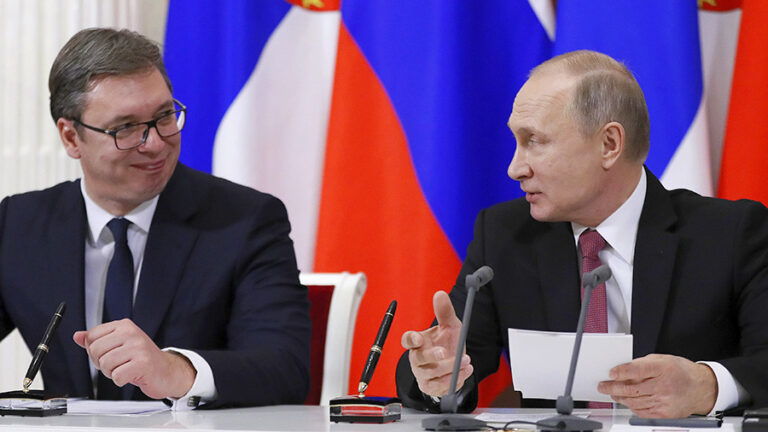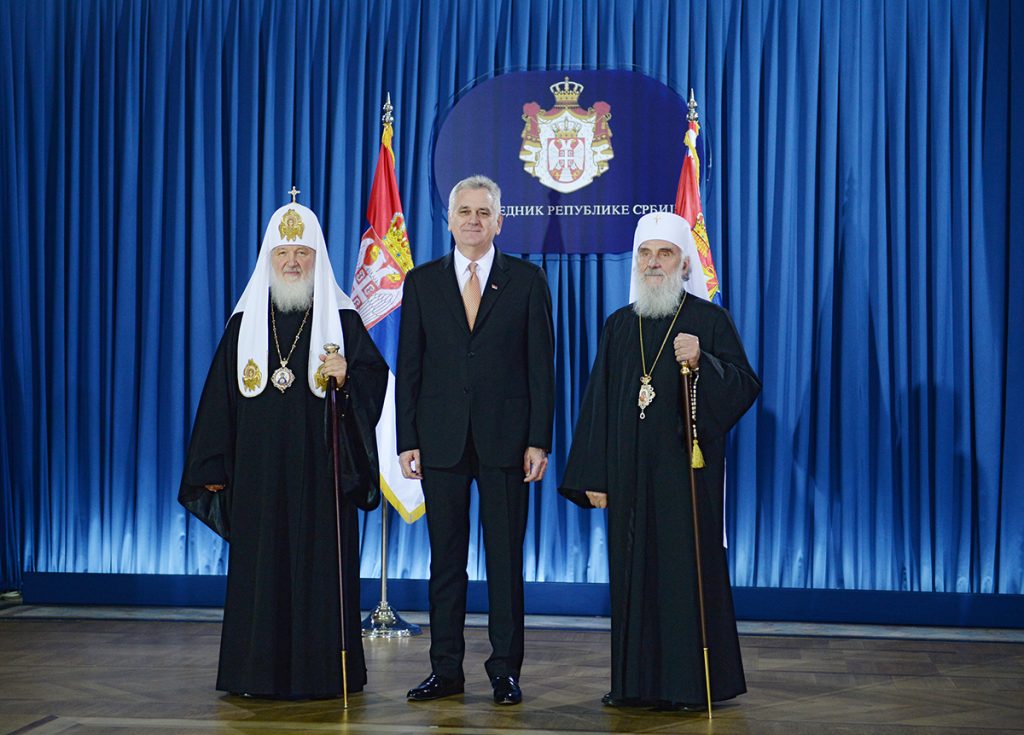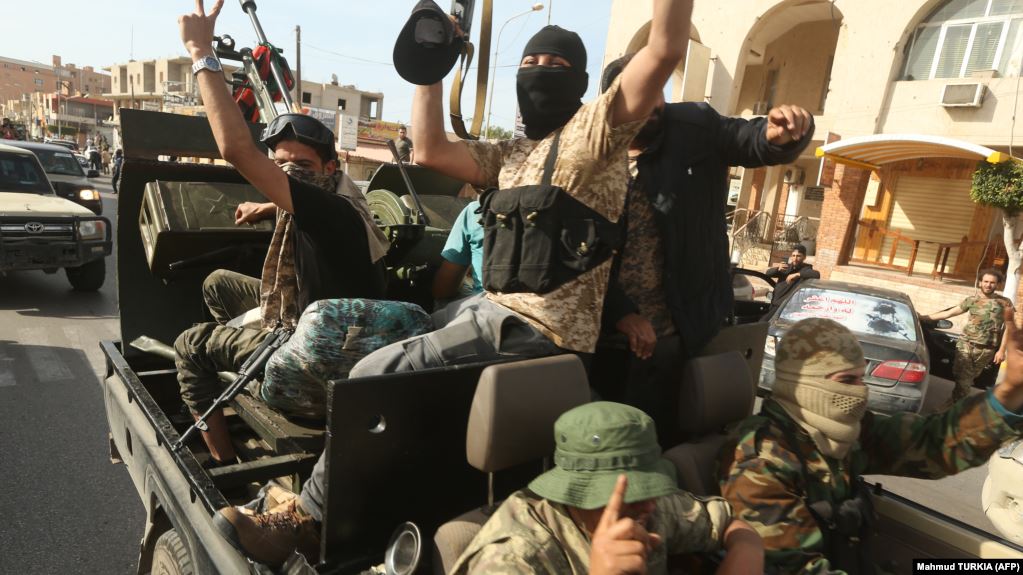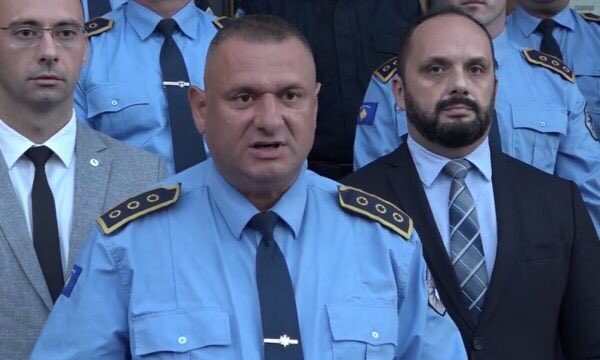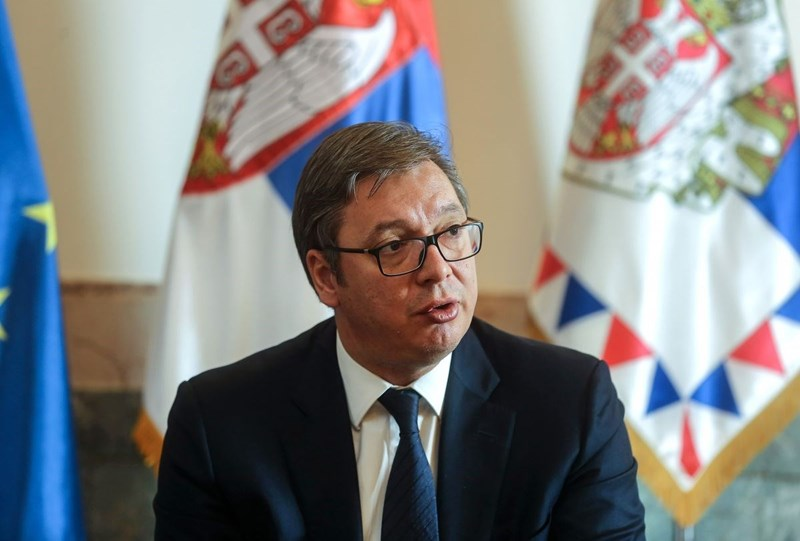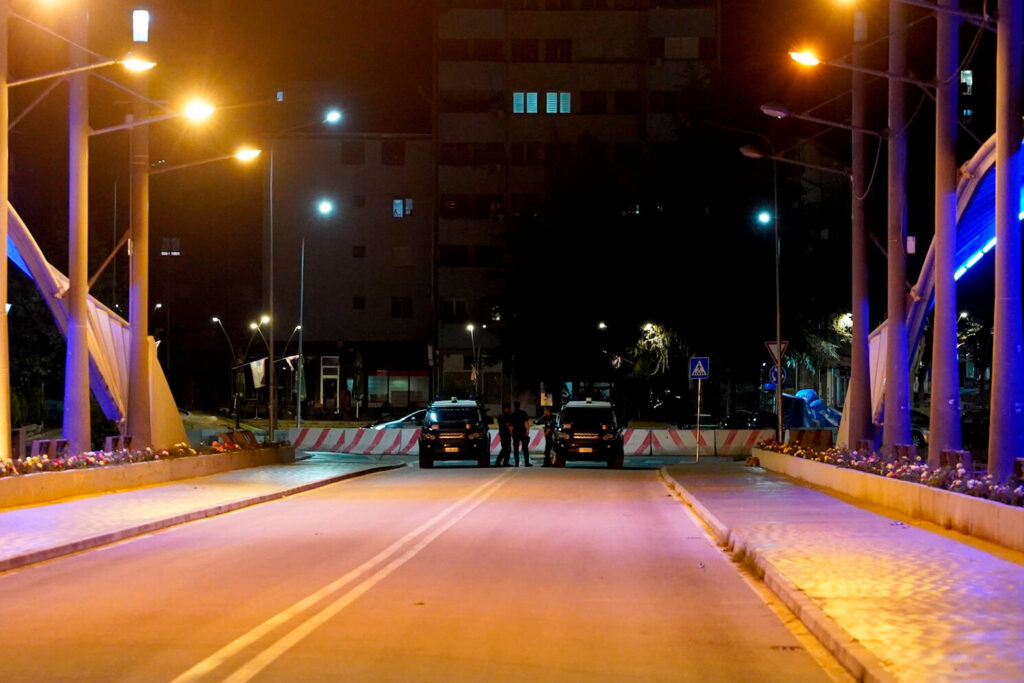Belgrade’s permission for Russia Today channel to broadcast on the territory of Serbia and the visit of Serbian far-right politician Damjan Knežević, the leader of the ultra-right organization ‘Narodna Patrola’, to the St.Petersburg Wagner Center are interconnected events that clearly show the Kremlin’s plans to destabilize the Balkan region and fuel one more conflict in Europe that supposedly should shift attention away from Russia’s war against Ukraine.
The Kremlin believes that the Balkans are the region vulnerable enough to provoke a large-scale conflict.
NATO membership of some countries in the region gives Russia an opportunity to cause confrontation between some members of the Alliance in case of a conflict.
In fact, Russia Today introduction in Serbia is the preparation stage for formation bipolar public opinion. This Russian military intelligence-affiliated propaganda channel has already conduct such information and psychological operations in Ukraine in late 2013 – early 2014 before the annexation of Crimea, as well as in early 2022 on the eve of the invasion of Ukraine. It is absolutely clear that the activity of Russia Today in Serbia will be aimed at discrediting the West and escalating ethnic conflicts in the region. The fact that the Serbs are quite loyal to Russia and they do not need any psychological operations prove this opinion. However, the Serbian government and elites are pretty cautious and try to avoid violence. That is why, Moscow has to make the public opinion formation scenario in Serbia that will push the government and elites to provoke a conflict. Knežević’s visit was covered by Yevgeny Prigozhin‘s Patriot Media Group (PMC Wagner) and Komsomolskaya Pravda, Russian military intelligence-affiliated newspaper.
Moscow is crucially interested in preventing Serbia from the EU integration. Such a scenario would isolate Serbia from Europe but push it closer to Russia.
Knežević’s visit to the Wagner Center shows that in the nearest future Russia is likely to start training Serbian nationalists at the Wagner PMC bases in Russia, as it has previously practiced with members of other far-right groups in Europe.
We still believe that the Wagner Group serves as the Expeditionary Forces and Special Operations Forces in Russia. Thus, perhaps, the Wagner PMC units may be deployed to Serbia to coordinate and assist Serbian paramilitary groups in the local operations.
For the Russians, Knezevic’s visit alongside the founder of the Russian-Serbian Center Orlovi, a locally based civic group, appeared aimed at countering perceptions of Russian isolation nine months into an unpopular invasion of Ukraine supported in part by Vagner mercenaries and, more rarely, Serbian and other foreign fighters.


